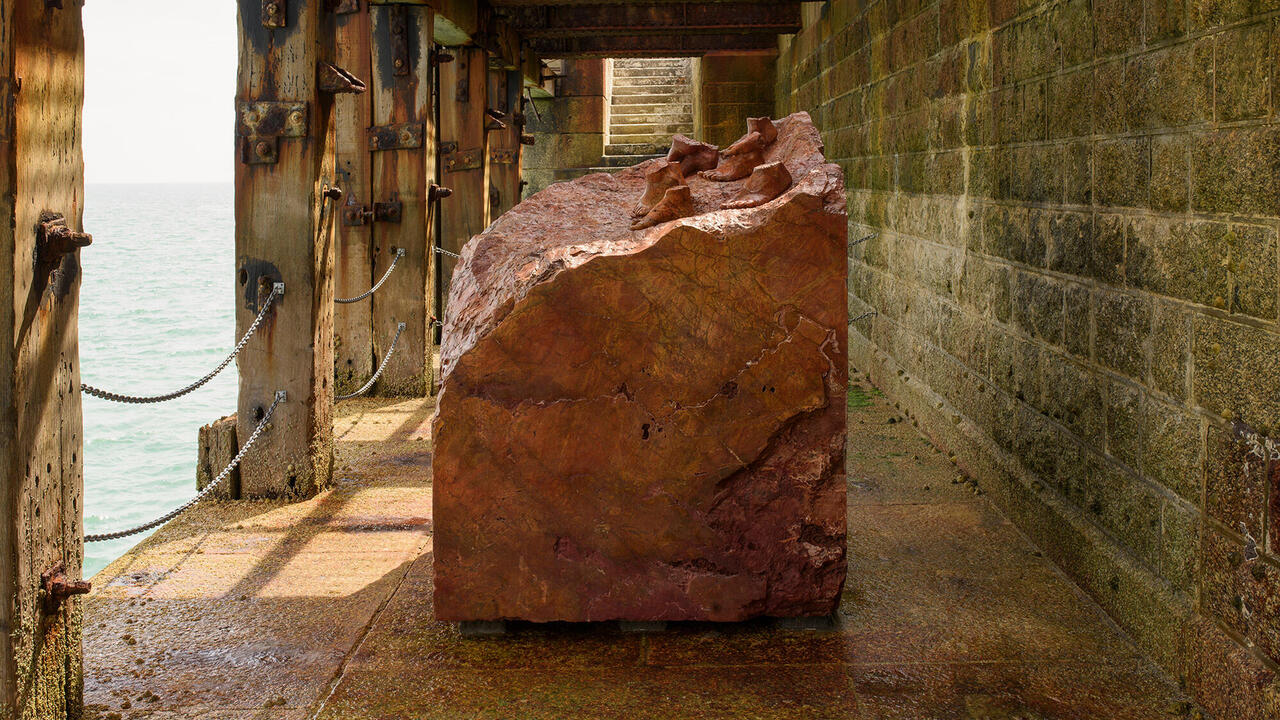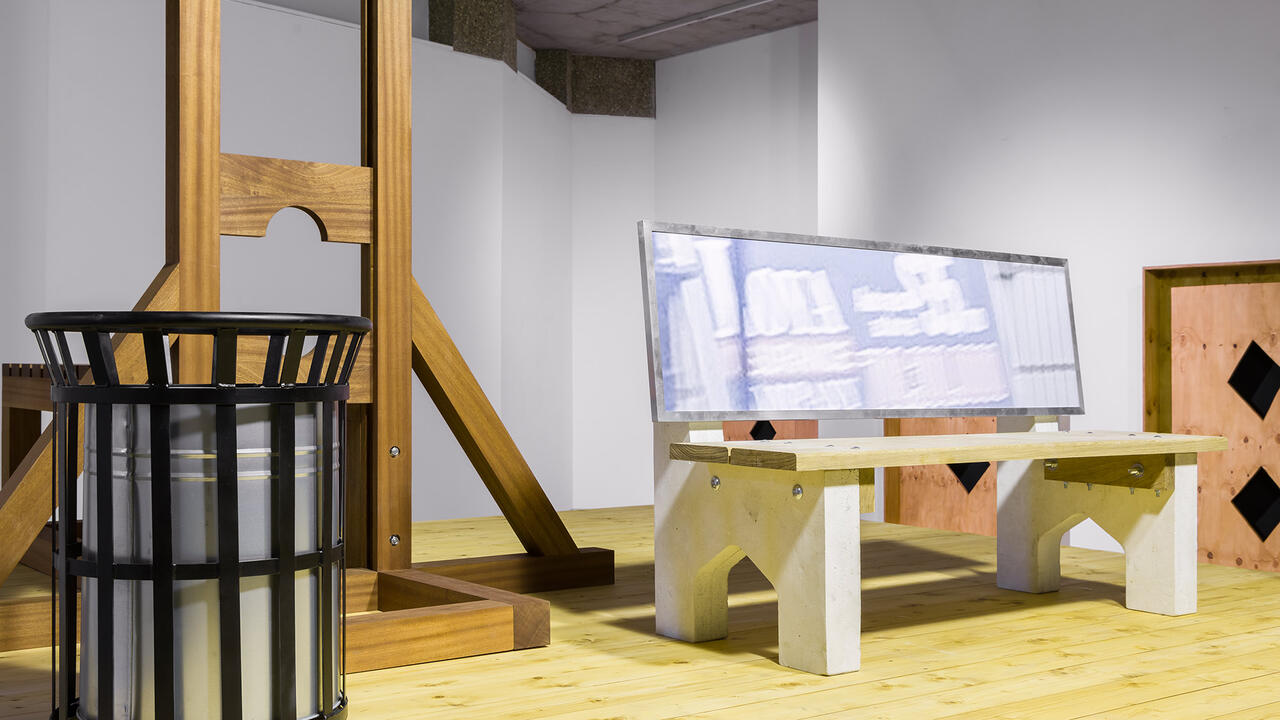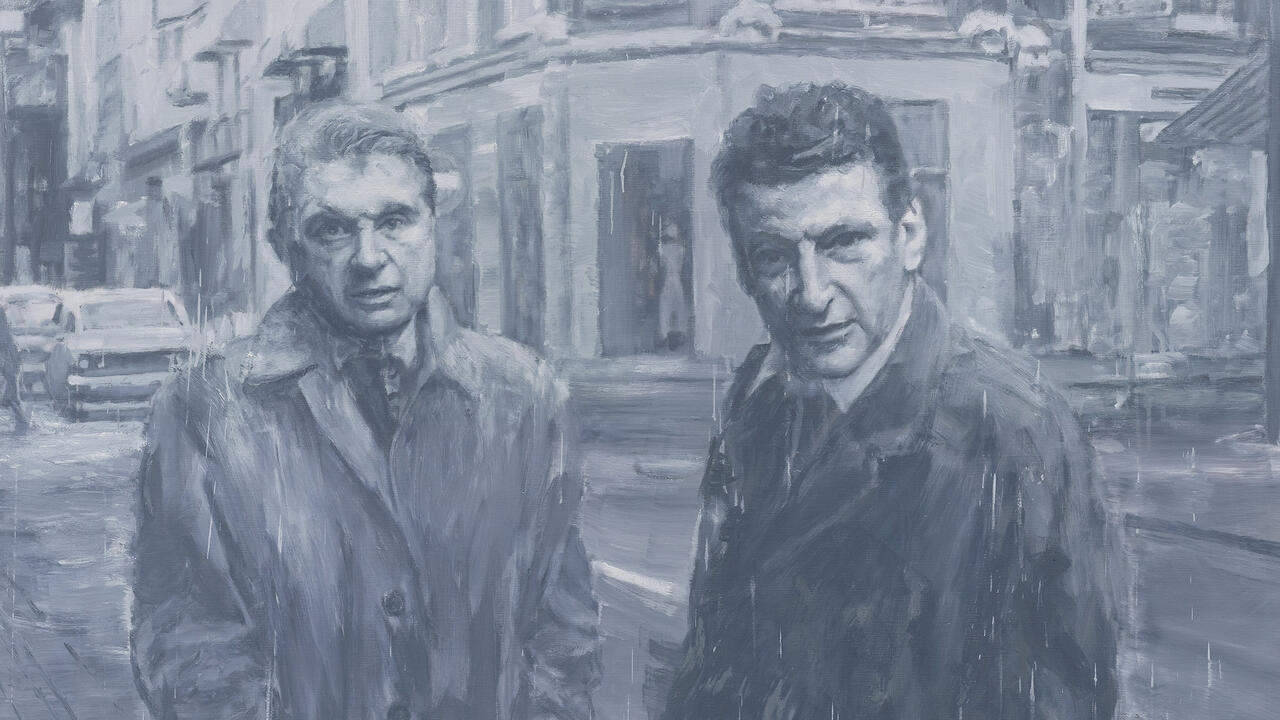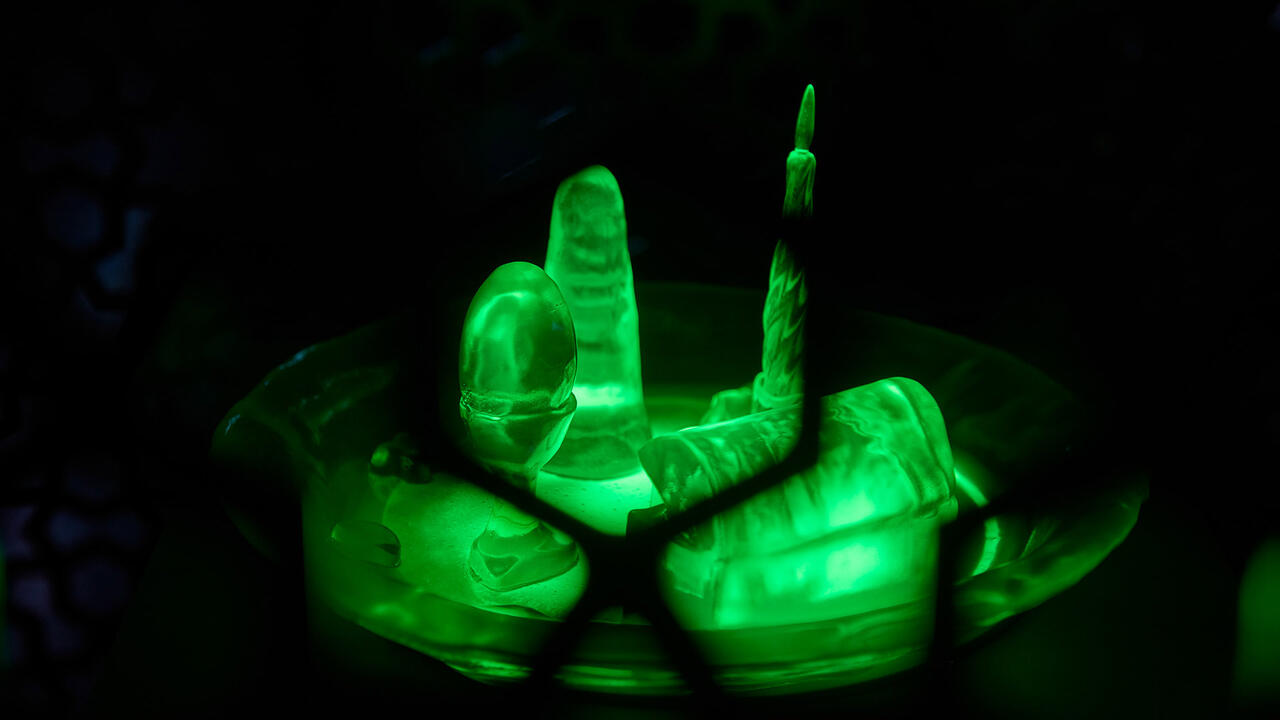Olivia Plender Returns to Socialism’s Feminist Past
At Maureen Paley, the artist uses the archive to reckon with women’s history in the UK
At Maureen Paley, the artist uses the archive to reckon with women’s history in the UK

The transformational artefact powering Olivia Plender’s ‘Our Bodies Are Not the Problem’ is a forgotten play by the British socialist and campaigner for women’s suffrage, Sylvia Pankhurst. Plender unearthed the typed manuscript of Liberty or Death (c.1913) in the archives of London’s Women’s Library. It offers an unromanticized view of the early 20th century struggle for political representation. Visiting a tenement block, a social campaigner encounters a woman on her deathbed after eight back-to-back pregnancies, a Catholic wife trapped in marriage to an abusive alcoholic, a brush-maker with hands broken from work, and many for whom exploitation is the norm. Protests demanding political representation result in the campaigner’s arrest, and violent episodes of forced feeding in prison. Change in the law is only discussed in UK Parliament after she dies at the hands of the police.
Liberty or Death is set in an east London district neighbouring Maureen Paley. Plender’s work is social and archival, so what we experience in the gallery is a fragmentary view of workshops the artist has led with local women’s organizations reading Pankhurst’s play and discussing its contemporary relevance. In the sound work Neither Strivers nor Skivers: They Will Not Define Us (2020) women – notably those in the UK as economic migrants or refugees – describe patterns of powerlessness and exploitation that would have been familiar to Pankhurst. Single mothers are demonised as skivers: condemned as negligent if they go to work and parasites if they stay at home. Both homes and children are used as leverage to quash dissent. As one woman puts it: ‘The welfare system is like an abusive relationship.’

Arrest! (2021), a suite of drawings of women’s suffrage protestors being roughly handled by police, evokes the violent response to those attending the 2021 vigil in London for police murder victim Sarah Everard. To what extent are we comfortable with women defending themselves in such contexts? In the two-screen film Hold Hold Fire (2022) (shown at London’s Institute of Contemporary Arts), a group of women learn Jujitsu techniques for use both as lone individuals and en masse to resist police intervention during a protest. On the second screen, they practice a shooting drill with wooden rifles – an homage to the People’s Army, founded by women campaigners in the early 20th century in response to police violence.
In a second gallery, banners show women mobilized, taking care of their (sexual) health, engaging in exercise classes, doing DIY, loving one another and preparing food. Our Bodies Are Not the Problem, The Problem Is Power (2022) takes its graphic cues from the line drawings of 1970s alternative publications associated with the Women’s Movement.
In the weeks leading up to Plender’s exhibition, a woman became the most right-wing British Prime Minister in a generation. On the show’s opening weekend, a report appeared in The New York Times revealing that, in 2017, the Women’s March movement had fractured in the wake of vicious social-media campaigns led by Russian trolls, specifically targeting feminist organizations. During its first week, women in Iran cut their hair and took to the streets protesting Mahsa Amini’s death in police custody after being detained for transgressing hijab rules.

There has been a necessary reckoning with the intertwined histories of feminism and the far right – in the art world, notably in Hannah Quinlan and Rosie Hastings’s brilliant 2021 show Disgrace. But left-wing feminism is at a fractious crisis point, and women’s freedom is under attack, in many ways and across many territories. In the grim context of our present moment, Plender’s research into feminist histories fit to be celebrated and calls to self-organise feel shockingly radical and urgent.
Olivia Plender's exhibition 'Our Bodies are Not the Problem’ is on view at Maureen Paley until 30 October 2022.
Main image: Olivia Plender, Neither Strivers Nor Skivers, They Will Not Define Us, 2020, ink on paper, 29.7 × 42 cm. Courtesy: © Olivia Plender and Maureen Paley, London

























